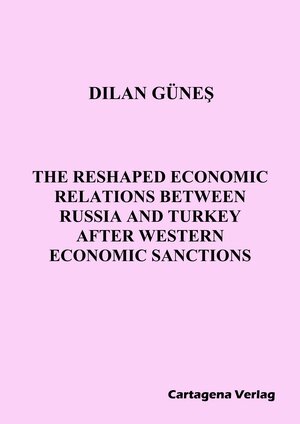
×
![Buchcover ISBN 9783981955491]()
Die Auswirkungen der vom Westen verhängten Wirtschaftssanktionen auf Russland und die Türkei haben direkte Auswirkungen auf das Kräfteverhältnis in der Region und weltweit. In der vorliegenden Studie wurde untersucht, wie die Wirtschaftssanktionen die Handelsbeziehungen zwischen Russland und der Türkei umgestalteten. Dabei wurden erklärende sequentielle Mischmethoden angewendet. Zum einen wurde das logarithmische Regressionsmodell anhand von Zeitreihendaten für den Zeitraum von 1992 bis 2018 angewandt, zum anderen eine Inhaltsanalyse durchgeführt, die die jährlichen Daten ab 1992 prüfte, sich jedoch hauptsächlich auf den Zeitraum zwischen 2014-2018 konzentrierte. Die Studie bestätigt, dass Wirtschaftssanktionen, die gegen Zielländer verhängt werden, die bereits Handelsbeziehungen unterhalten, den bilateralen Handel zwischen ihnen verstärkt. Die Analyse zeigt ferner, dass sich die Zielländer für eine Diversifizierung ihres Handels entschieden haben, um die Auswirkungen der wirtschaftlic
THE RESHAPED ECONOMIC RELATIONS BETWEEN RUSSIA AND TURKEY AFTER WESTERN ECONOMIC SANCTIONS
von Dilan GünesEconomic sanctions as a foreign policy tool is used by sender countries to change policy or behavior of atarget country. The economic sanctions are multilevel phenomena that not only affects both sides of the action but also have implications for third parties, reshaping the political and economic relations of the sender and target countries with the other states. The effects of the economic sanctions imposed by the West on Russia and Turkey have direct implications for the balance of power in the region and globally. Therefore, this paper aimsto examinehow did economic sanctions (re)shape the economic relations between Russia and Turkey. In doing so, the paper applies explanatory sequential mixed methods. First, logarithmic regression model was conducted by time series data over the period ranging from 1992 to 2018. The paper confirms that economic sanctions imposed on target countries that already have trade relations increase the bilateral trade between them, especially for Turkish case. Subsequently, content analysis was conducted reviewingannual data starting from 1992 but mostly focusing on 2014-2018 period. The analysis showsthat because the sender countries are important trade partners in the target countries, to counterbalance the effects of economic sanctions target countries choose to diversify their trade. According to the results, Russia diversified towards Asia and Central Asia while Turkey increased its trade with the EU which is mutual ally of the US and Turkey. Excluding the 2015 plane crisis between Russia and Turkey, the Western sanctions imposed on both countries increased the bilateraltrade between them. However, these two countries are the first choice of each other when it comes to trade partner diversification.


